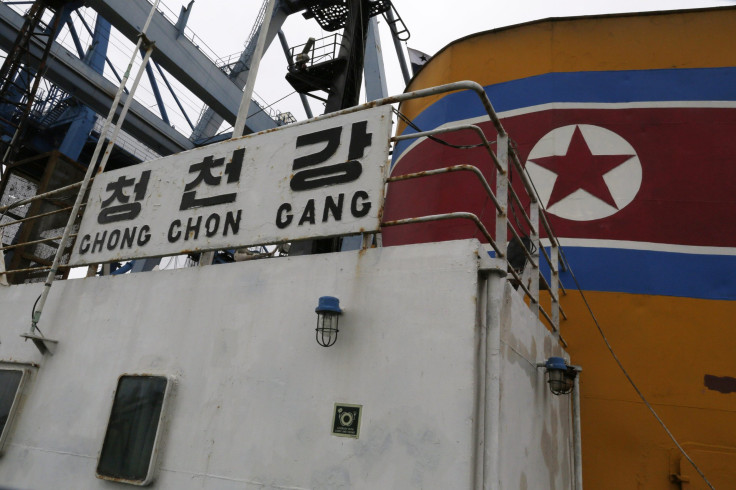Cuba-North Korea Military Summit: Will It Harm Havana’s Immigration Talks With Washington?

As the story of the North Korean boat Chong Chon Gang that was intercepted in Panama emerges, Cuba announced Wednesday that North Korean officials visited the island two weeks ago. Both countries held a military summit on June 30, as reported by the official Cuban newspaper Granma.
“I am visiting Cuba to meet up with my comrades, the Cubans,” said Gen. Kim Kyok Sik, chief of the Korean People’s Army.
The general met with Defense Minister Leopoldo Cintra Frías, and other members of the army, as well as with President Raúl Castro. The details of the meeting were not disclosed, but local news site Cubainformación said that both countries have always been linked in the defense of socialism against U.S. imperialism.
“The cruel initiatives from the U.S. imperialists to expand the embargo on Cuba were controlled and hindered,” reported the North's state-run Korean Central News Agency.
Cuba and North Korea have had political and diplomatic relations for decades, which became more active in 2001 with the visit of a Cuban delegation to Pyongyang. Cuba is one of the few countries in the world that maintains a close relationship with North Korea, along with Iran, China and Syria. All four reject the weapons embargo that the UN Security Council ordered against the Asian country in 2006.
International sanctions increase every time North Korea carries out a nuclear weapons test. The last one, in February of this year, prompted a letter from Fidel Castro advising against anything that might result in a war between the two Koreas. “People from both sides of the border will be slaughtered, with no benefit to either part of the Peninsula,” he said. This statement, broadcast by world media, was seen as a change of conscience and a call to moderation, since until then Havana had always sided with Pyongyang.
Andrei Lankov, a professor at Kookmin University in Seoul, told the BBC that the relationship between Cuba and North Korea has a great deal of symbolic importance, but in reality it does not amount to much. “North Korea is looking to trade for money, and Cuba isn’t willing to pay much,” he said.
“Cuba isn’t even in the top 10 trade partners for Pyongyang, and the huge distances between them make transportation expensive,” he added.
However, as evidenced by the cargo on board the Chong Chon Gang, which was intercepted carrying Soviet-era weapons among sacks of sugar, both countries might have more common ground in the matter of arms trading.
North Korea’s military is based on Soviet-era hardware, and the pool of such equipment is diminishing worldwide -- except for Cuba, which uses the same weaponry as the Asian country.
If that was the case, Cuba, as a U.N. member state, could be breaking three U.N. resolutions that ban any weapon shipment to North Korea.
The detention of the Chong Chon Gang on Tuesday happened just a day before representatives from Cuba were set to travel to Washington to discuss immigration laws, a meeting that has been planned for more than a year and whose result could be jeopardized by the incident.
© Copyright IBTimes 2024. All rights reserved.





















